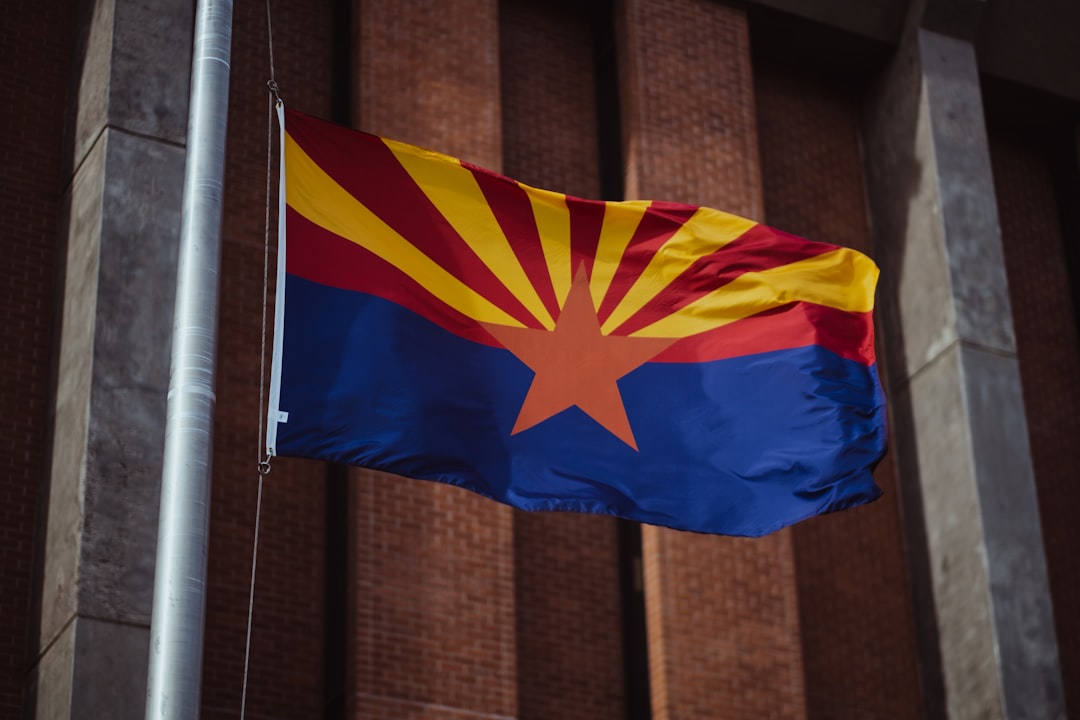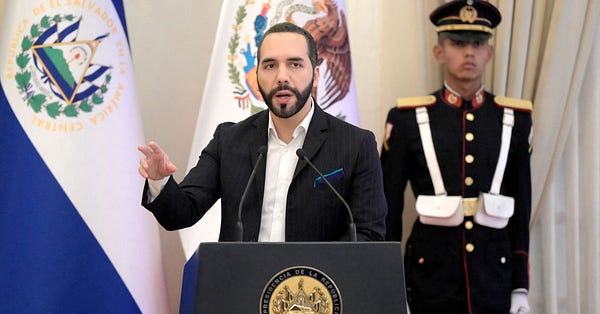Edition No. 35
CTFC Enforcement Action; Coinbase Fined; AZ Tries to Recognize BTC; NYDFS Issues Crypto Guidance; Crypto Changes Regulatory Hands in Indonesia; and more. Here's what happened from 1/22/2023 - 1/28/202
Welcome back to Around the Blockchain, the weekly letter dedicated to keeping readers like you up to date on the fast-paced world of Crypto & Law by airdropping current stories directly to your browser.
Table of Contents:
On the Docket (Top Stories of the Week)
Bird Watching (Tweet, tweet!)
The Public Ledger
Blockchain 101
Podcasts, Videos, & Blogs (The faces, voices, and pens of Web3’s brightest contributors)
Closing Statements
On the Docket
Five things you might have missed last week:
1. CFTC Files First Enforcement Action for “Oracle Manipulation” of a Decentralized Exchange
CTFC Foresees Civil Penalties for Alleged Oracle Manipulator
The Commodity Futures Trading Commission (CFTC) has filed a civil enforcement action in the US District Court for the Southern District of New York, accusing Avraham Eisenberg of a fraudulent and manipulative scheme to unlawfully obtain over $110m in digital assets from a decentralized digital asset exchange (DEX). This is the CFTC's first enforcement action for a fraudulent or manipulative scheme involving trading on a decentralized digital asset platform, and its first involving a scheme that is sometimes called "oracle manipulation".
“The CFTC will use all available enforcement tools to aggressively pursue fraud and manipulation regardless of the technology that is utilized”
The CFTC is seeking various forms of relief from Eisenberg in the litigation, including civil monetary penalties, disgorgement of any ill-gotten gains, restitution, permanent trading and registration bans, and a permanent injunction against further violations of the Commodity Exchange Act (CEA). Acting Director of Enforcement Gretchen Lowe, said “The CEA prohibits deception and swap manipulation, whether on a registered swap execution facility or on a decentralized blockchain-based trading platform."
See also: JD Supra

2. Coinbase Fined $3.6M by Dutch Regulator
Dutch Disciplinary Dues Disputed
The Dutch central bank has fined crypto exchange Coinbase $3.6 million for failure to register under anti-money-laundering and terrorist-financing laws while providing crypto services to customers in the Netherlands.
Dutch authorities increased the fine due to factors including degree of culpability, the scale of Coinbase's domestic customer base, and the competitive advantage gained by avoiding supervisory fees.
Coinbase has said it disagrees with the enforcement order and is considering an appeal. The crypto giant has until March 2 to object to the fine.
“Coinbase is committed to compliance in all jurisdictions in which it operates and will continue to provide safe, trusted services to new and existing Dutch customers…We should not be penalized for playing by the rules and engaging in this process,"
- Coinbase spokeswoman MaryKate Collins
See Also: Dutch Central Bank
3. Arizona Senator Reintroduces Bill to Recognize Bitcoin as Legal Tender
Arizona’s Bitcoin Bill: 'Love Me Tender' or Leave It Alone?
Arizona State Senator Wendy Rogers has reintroduced legislation to legalize Bitcoin in the state, allowing state agencies to accept cryptocurrency as a standard method for sending and receiving payments. If successful, Arizona would become the first state in the U.S. to officially recognize Bitcoin as a legal currency, enabling individuals and businesses to use Bitcoin to pay debts, taxes, and other financial obligations. Also, state agencies would be able to accept Bitcoin as payment. The bill specifically defines Bitcoin as a decentralized, peer-to-peer digital currency, operating on a network of computers rather than being controlled by a central authority such as a government or financial institution. In 2020, Rogers introduced legislation to make Bitcoin a legal form of currency in Arizona but did not pass.

4. NYDFS Issues Customer Protection Guidance for Virtual Currency Custodians
NY Regulator Issues Guidance to Crypto Custodians: Don’t “fuhgeddabout” Customer Protections
The New York State Department of Financial Services (NYDFS) has issued customer protection guidance to entities that custody virtual currency assets in the event of insolvency. With a general emphasis on sound custody and disclosure practices, the guidance focuses on four main areas:
Segregation of and separate accounting for customer virtual currency: Virtual Currency Entities (VCEs) that act as custodians (VCE Custodians) should separately account for and segregate customer virtual currency from the corporate assets of the VCE Custodian and its affiliated entities, both on-chain and in internal ledger accounts.
VCE Custodian’s limited interest in and use of customer virtual currency: VCE Custodians should take possession of customer virtual currency only for the limited purpose of carrying out custody and safekeeping services, and should not establish a debtor-creditor relationship with the customer.
Sub-custody arrangements: VCE Custodians should ensure any sub-custodians meet sufficient customer protection standards.
Customer disclosure: VCE Custodians should clearly and prominently disclose how they segregate and account for customer virtual currency and have clearly documented policies and procedures ensuring safeguards are in place.
See Also: JD Supra

5. Indonesia Regulatory Shift May Reclassify Crypto as Securities
Indonesia Looks Forward to the Future of Crypto
Indonesia has passed a law transferring crypto regulatory powers from the Commodities Futures Trading Regulatory Agency (CoFTRA) to the Financial Services Authority (OJK) as part of a financial regulations overhaul. The move could change the country's classification of crypto assets as commodities and indicate a shift in the country's approach to policing the industry, recognizing there is more to it than asset trading.
The regulatory switch is viewed as a sign the country sees promise in the technologies underlying crypto, with the OJK to supervise the industry under its "Financial Sector Technological Innovation" framework.
The change could have implications for how crypto assets are treated, possibly similar to securities and thus subject to securities-related requirements and restrictions. The transition is expected to take two years.
“We must admit that this shift has shown a good understanding from the regulator that crypto assets are broader than just trading”

Bird Watching
Tweet, Tweet, Tweet!





The Public Ledger
Highlights from the hundreds of sources gathered each week by our research AI. Always DYOR - but in case you don’t have time, here’s some of ours:
General News and Opinion
U.S. - Federal
Sens. Warren and Wyden criticize PCAOB over its handling of crypto audits
IRS Provides Guidance on How to Answer Digital Asset Question on Tax Return
FinCEN Issues Historic Order Against Virtual Currency Exchange Facilitating Russian Illicit Finance
U.S. - State Law
California DMV puts car titles on Tezos blockchain, consumer applications on the way
State AGs Reach $24M Settlement With Cryptocurrency Company Nexo
International

Blockchain 101
Blockchain 101 is the product of our team’s desire to reduce what has typically been a significant educational barrier of entry into the crypto space. Our goal is to create a digestible and understandable curriculum accessible to anyone - while simultaneously helping our own nascent members to expand their understanding of the fundamentals of Web3.
Lesson No. 9: DeFi Terms
Welcome back, readers! In our last lesson, we covered alternative Layer-1 blockchain networks. Today, we’re diving deeper into DeFi by providing simple explanations of the following terms and concepts:
Wallets
Whales
Oracles
Liquidity Providers (LPs)
Liquidity Pools
Yield Farming
Automated Market Makers (AMMs)
Impermanent Loss
Tokenomics
To view this week’s lesson, READ HERE.
Podcasts, Videos, and Blogs
The brightest voices & sharpest pens:
Law of code - Jacob Robinson sits down with Aaron Wright, CEO and co-founder of @TributeLabsXYZ and a Professor at Cardozo Law, to discuss crypto law, DAOs and much more!
Bankless - The Bankless team discusses all the crypto news that took place in the last week of January including Genesis’s Chapter 11 bankruptcy, Ethereum’s shadow fork gearing the network for its Shanghai upgrade and Porsche’s NFT woes!
Bloomberg Crypto - Bloomberg editor Anne Irrera and reporter Emily Nicole do a deep-dive into Gensis’s bankrupty by discussing its importance to the crypto ecosystem, its relationship to Gemini and the effects its bankruptcy is going to have on the industry.
Unchained - Hosts Haseeb Qureshi, Tom Schmidt and Tarun Chitra are joined by Flashbots co-founder Phil Daian for another episode of “The Chopping Block!”. The team discusses what maximum extractable value (MEV) is and the critical role it plays in the Ethereum ecosystem.
DaoTalk - DAO Talk discusses governance tokens and mechanisms, and gives its take on Ethereum upgrades and the SEC charges against Mango Markets hacker Avraham Eisenberg.
Closing Statements
We want to hear from you:
If you enjoyed what you read today, subscribe to receive the weekly publication and give the authors a follow on Twitter for updates on what’s next for the newsletter!
If you didn’t enjoy it, let us know why! We value the opinion of our readers above all else. After all, this letter is for you. - Kyler, Chris, and the Around the Blockchain News team.
Quote of the Week:
Law is order, and good law is good order.
Thanks for reading Around the Blockchain! Subscribe for free below:













